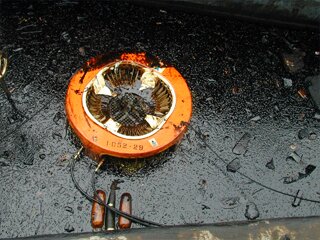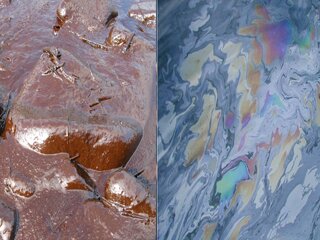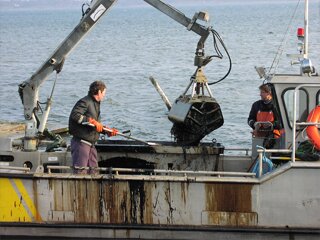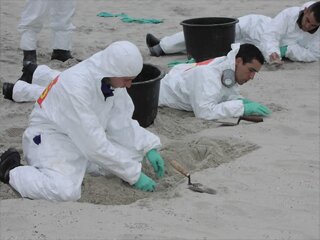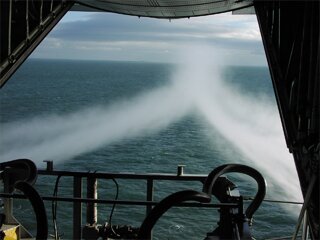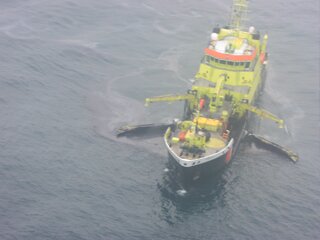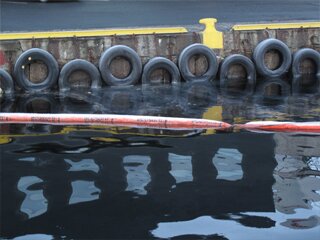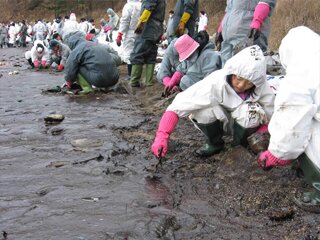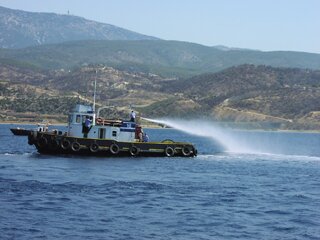Documents & Guides
Explore a variety of topics about marine spills, response and compensation matters in the pages below.
Each topic and area of interest provides access to more detailed documentation that is freely downloadable.
This includes our 18 Technical Information Papers which are fully illustrated with photos and diagrams and are available in several languages.
Alternative Fuels
What are the emerging alternative fuels and their associated risks, hazards, damages and liabilities?
Compensation for Ship-source Marine Oil Spills
What legal arrangements and sources of compensation are available for a spill from a ship?
Disposal
What planning and waste management systems need to be put in place to reduce the volume of oily waste for treatment or disposal?
HNS
What are the specific chemical response strategies for responding to a Hazardous and Noxious Substance spill, and what are the potential effects on human and marine life?
Contingency & Response Planning
What information is needed for an effective oil spill contingency plan? How can aerial observation and protective strategies assist with response operations?
Economic Effects
Which industries might suffer temporary economic losses and loss of market confidence?
Fate of Oil Spills
What happens to oil in the marine environment over time when spilled at sea? How do different factors such as volume and physical and chemical properties affect the fate of oil spills?
Explore the Resources
A review of the problems posed by spills of heavy fuel oils (2001)
This review of the practical lessons which can be learnt from past events is intended to provide an informed basis for the selection of more effective response techniques and equipment, and for the development of improved spill response management and contingency planning
Categories: Response Techniques, Papers
Persistent vs. non-persistent oils: What you need to know (2001)
The concept of persistence in relation to oil spills probably originated after the Torrey Canyon incident in 1967. This is when discussions first arose regarding various new measures to protect the marine environment and to manage marine oil spills, particularly in relation to liability and compensation.
Categories: Fate of Oil Spills, Response Techniques, Papers
At-sea recovery of heavy oils - A reasonable response strategy? (2002)
Within the wider debate on the effectiveness of at-sea recovery, this paper investigates whether the particular characteristics of heavy oils warrant special consideration when planning and responding to spills of these oils. The paper reviews arguments for and against greater at-sea recovery efforts than would be justified with other, lighter oils.
Categories: Response Techniques, Papers
Termination of shoreline cleanup - a technical perspective (2002)
There is always a balance to be struck between the different sensitivities and priorities on a shoreline when trying to decide the degree of cleaning which should be carried out after an oil spill and the methods that should be used. Priorities need to be set depending on the use and environmental sensitivity of the shore in question. Often, there is no simple answer which will satisfy all parties.
Categories: Response Techniques, Papers
Oil spill dispersants - Myths & mysteries unravelled (2002)
The subject of oil spill dispersants has attracted greater attention in recent years as more countries have sought to develop legislation permitting their use. Claims about the improved effectiveness of 'new generation' dispersants coupled with concern about possible toxic effects have created a confused and emotionally charged arena in which to debate this topic.
Categories: Response Techniques, Dispersants, Papers
International co-operation in oil spill response in European waters (2004)
It is often observed after large oil spills that there is pressure to review and change the oil spill prevention and emergency response system. In recent years this was true following the SEA EMPRESS (1996) which resulted in a reorganisation of responsibilities in the UK, the ERIKA (1999) which resulted in new IMO rules on tanker standards and the BALTIC CARRIER (2001) which resulted in a HELCOM review of response techniques.
Categories: Response Techniques, Papers
Oil spills in ports (2006)
Whilst large oil spills arising from shipping accidents often make dramatic news, most oil spills are small and originate in or near ports. ITOPF oil spill statistics for tankers, for instance, reveal that 80% of all tanker spills are less than 7 tonnes and that 80% of these arise from operational accidents such as those that might occur during loading, discharging, and bunkering.
Categories: Response Techniques, Papers
Oil spills from floating production & storage craft: Contingency & response considerations (2006)
As exploitation of undersea oil moves further offshore floating production and storage systems offer a cost-effective alternative to conventional fixed platforms and seabed pipelines. Floating systems come in a variety of designs but due to their versatility, FPSOs (Floating Production, Storage and Offloading units) are a particularly popular choice.
Categories: Response Techniques, Planning & operations, Papers
Volunteers and oil spills - a technical perspective (2011)
Many oil spill cases around the world have experienced significant volunteer turnouts. One of the most recent was the HEBEI SPIRIT incident in South Korea in 2007, where 10,500 tonnes of crude oil were spilled, 400km of shoreline were contaminated and 1.2 million volunteers came to help, creating extra issues that add to the core work of cleaning up the spill.
Categories: Response Techniques, Papers
The use of chemical dispersants to combat oil spills at sea: a review of practice and research needs in Europe (2007)
In order to better understand the practice of dispersant use, a review has been undertaken of marine oil spills over a 10 year period (1995 – 2005), looking in particular at variations between different regions and oil-types. This viewpoint presents and analyses the review data and examines a range of dispersant use policies.
Categories: Dispersants, Papers

